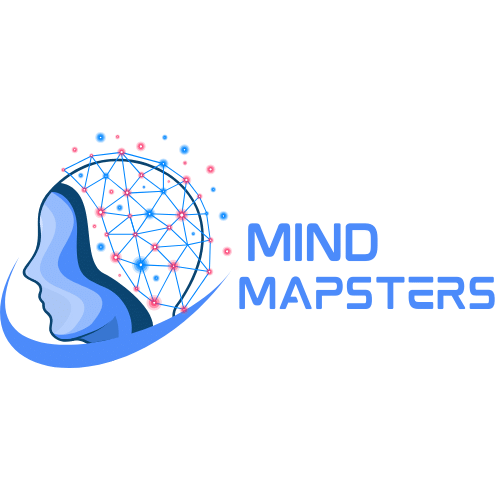Workplaces can be tough deadlines, meetings, and the constant hustle. It’s easy to get caught up in the stress. But what if we could change that with something simple? Enter meditation. It is not just for calm and relaxation; it’s a real game-changer at work. By meditating, you can lower your stress levels, clear your mind, and improve how you handle work challenges. Plus, it is something you can do right at your desk.
It is not about spending hours, just a few minutes can make a big difference. Imagine being more focused, patient, and energetic. That is what meditation can do. So, why not make it a part of your work routine? Let’s explore how meditation at workplace can lead to a happier and more productive day at the office.
Related Post: How to Meditate Like a Stoic?
Table of Contents
ToggleThe Importance of Physical and Mental Health of Employees
Physical and mental well-being are not just personal issues; they are essential for a productive and sustainable workplace. Here is why focusing on the health of employees is vital for any organization.
Physical Health: The Foundation of Productivity
Healthy employees are the backbone of a productive workforce. When employees are physically fit, they are less likely to take sick leaves, leading to reduced absenteeism and higher productivity. Moreover, good physical health boosts energy levels and increases the capacity to handle work pressures. Investing in the physical health of employees, through initiatives like ergonomic workstations, fitness programs, and health screenings, is an investment in the company’s performance.
Mental Health: Critical for a Positive Work Environment
Mental health is equally important. It’s about more than just avoiding stress or burnout; it’s about fostering a workplace where employees feel valued, supported, and motivated. Mental health issues, if unaddressed, can lead to decreased concentration, low morale, and higher turnover rates. Initiatives like flexible working hours, mental health days, counseling services, and creating a culture of open communication can make a significant difference.
Top 8 Advantages of Practicing Meditation in the Workplace
Below are some notable benefits of incorporating meditation into the work setting:
1: Stress Reduction Through Meditation at Work
Stress at work is common, but meditation can help. It’s like a stress-buster. When you meditate, you take a break from the chaos. It helps your mind relax. This is not just a feeling; science backs it up. Studies show meditation lowers stress hormones in your body.
When things get too much at work, taking a few minutes to meditate can calm you down. It’s like pressing a ‘pause’ button on stress. And the best part? You can do it anywhere at your desk, in a quiet corner, or even during a short break. Making meditation a regular part of your workday can change the way you handle stress.
2: Enhanced Focus and Concentration
When you meditate, you train your brain to focus on one thing. This can be your breath or a simple word. Doing this regularly helps you concentrate better, even when you are not meditating.
It is like lifting weights, but for your brain. This means when you are working on a project or listening in a meeting, you can stay on track easier. Less wandering thoughts, more getting things done. Let’s dive into how meditation sharpens your focus and helps you stay on top of your work game.
3: Improved Emotional Intelligence
Emotional intelligence is key in the workplace. It is about understanding your emotions and those of others. This helps in dealing with office dynamics and stress. And guess what? Meditation can improve this skill.
When you meditate, you become more aware of your thoughts and feelings. This is not just about being calm; it is about understanding your reactions. Over time, meditation helps you recognize your emotions without getting overwhelmed by them. This means better control and a more balanced response to work situations.
4: Boosting Creativity and Problem-Solving Skills
Creativity and problem-solving are like superpowers at work. And meditation can help boost these skills. When you meditate, you clear your mind. This is not just about reducing stress. It is about making space for new ideas. A calm mind is more open to creative thinking.
You can see problems from different angles and come up with unique solutions. Studies have shown that meditation can enhance creative thinking. It’s not magic. It is about how meditation changes the way our brain works. Regular meditation can improve how we connect different ideas and think outside the box.
5: Increased Productivity and Efficiency
Productivity is key in any job. You want to get things done well and on time. Meditation can play a big role in boosting your productivity. Remember how meditation helps with concentration? This directly ties into being more productive. When you’re able to focus better, you get more done in less time. It’s about working smarter, not just harder.
When you are less stressed, thanks to meditation, you can work more efficiently. Stress often slows us down, making tasks seem harder than they are. By keeping stress at bay, you can tackle your work with a clearer mind.
6: Enhanced Employee Well-being and Health
A healthy employee is a happy employee. Meditation doesn’t just improve your mind; it’s great for your overall health too. Meditation has some surprising health perks. It can lower blood pressure, reduce chronic pain, and even improve sleep.
All these factors contribute to better physical health, which is crucial when you have a demanding job. Mental health is equally important. Meditation is known for reducing anxiety and depression symptoms. It helps in managing stress, which is a big part of maintaining mental well-being. When you feel good mentally, you are more likely to perform well at work.
7: Improved Interpersonal Relationships
Good relationships at work are crucial. They make the job more enjoyable and the workplace more harmonious. Meditation can play a big role in improving how we interact with others.
When you meditate, you become more aware of your own emotions. This awareness helps you understand others better too. It’s about empathy—putting yourself in someone else’s shoes. A more empathetic attitude can lead to better teamwork and less conflict.
Meditation helps in calming your mind. When you’re calm, you communicate more clearly and listen better. This can improve your interactions with colleagues, leading to more productive and positive conversations.
8: Reduced Absenteeism and Employee Turnover
A healthy workplace isn’t just about productivity; it’s also about stability. Meditation can play a big role in reducing absenteeism and employee turnover. We’ve seen how meditation improves both physical and mental health. Healthier employees are less likely to take sick days. This means fewer absences due to stress-related illnesses or mental health issues.
Meditation can create a more positive workplace atmosphere. When employees feel supported and stress-free, they’re more likely to stay. This reduces turnover, saving the company time and resources in hiring and training new staff.
Research and case studies in various organizations show that meditation programs can lead to lower turnover rates. Employees who practice meditation regularly often report higher job satisfaction.
Implementing Meditation Practices in the Workplace
We’ve seen how meditation can transform your work life. Now, let’s talk about how to bring it into the workplace. It’s easier than you might think.
Starting Small
You don’t have to jump into long meditation sessions. Start with something simple. Maybe a few minutes of guided meditation before a big meeting or a quiet moment of deep breathing during your break.
Creating a Meditation-friendly Environment
It helps if the workplace supports this. Companies can set up a quiet room for meditation or offer mindfulness workshops. Even just encouraging short meditation breaks can make a big difference.
Using Technology
There are tons of apps and online resources for meditation. These can guide you through quick sessions that fit into your workday. It’s an easy way to get started, especially for beginners.
Making It a Habit
Like any new skill, meditation takes practice. The key is to make it a regular part of your day. Maybe right after lunch or during that mid-afternoon slump. Find a time that works for you and stick with it.
Involving Everyone
Meditation is for everyone, no matter their role in the company. Encouraging group sessions or sharing experiences can build a sense of community. It’s all about creating a culture where taking care of your mind is as normal as taking a coffee break.
Conclusion:
Meditation is more than just a wellness trend—it’s a game changer in the workplace. By reducing stress, improving focus, and boosting overall health, it enhances every aspect of work life. But its impact doesn’t stop there. Meditation helps create a positive shift in work culture, emphasizing the importance of mental health for professional success.
Looking ahead, the future of workplace meditation is bright. As more companies recognize its benefits, it’s likely to become a regular part of the workday. Whether you’re an employee or a leader, consider how meditation can make a difference in your work life. Give it a try, encourage your colleagues, and see how it can transform your workplace into a happier, healthier, and more productive environment.
This isn’t just about individual benefits; it’s about building a work culture that values and supports mental well-being. Embracing meditation can be a step towards creating a workplace that cares not only about getting the job done but also about the people who do it.










